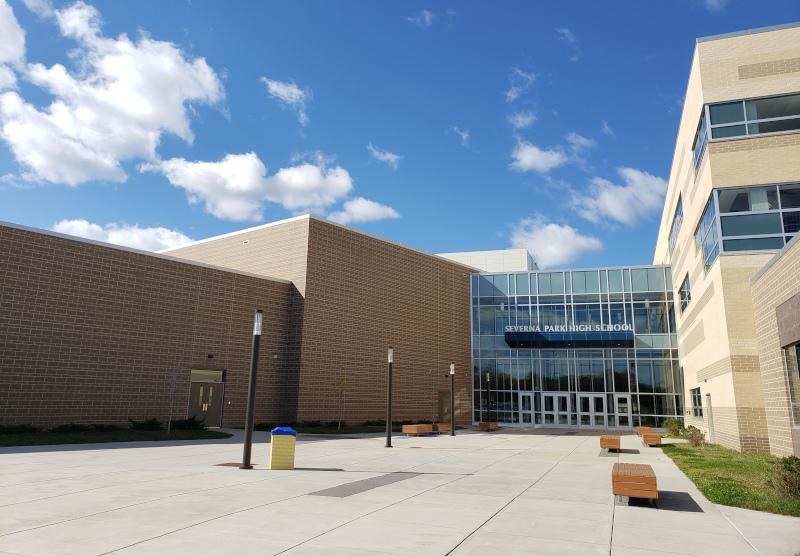In Maryland, zoning must be consistent with planned land use, therefore most of the proposed zoning changes are to align with the adopted Plan2040 Planned Land Use Map, which the County Council adopted in May 2021. There may also be updates initiated by property owners who apply to change their zoning, and there may be additional updates proposed by County staff and community stakeholders as part of the Region Plan process.
The County will conduct comprehensive zoning in tandem with Region Plans. Sign up to receive updates via email about the comprehensive zoning process. For more information on the Region Planning process, see the Region Plans Hub sites.
-
 Region 1
Region 1Region 1 includes the north County communities of Linthicum Heights, Brooklyn Park, Curtis Bay, Ferndale, and parts of Hanover and Severn.
-
 Region 2
Region 2Communities of Jessup, Annapolis Junction, Laurel, Maryland City, Fort Meade, Patuxent Research Refuge and parts of Hanover
-
 Region 3
Region 3Region 3 includes the central and eastern communities of Glen Burnie, Severn and a portion of Millersville as well.
-
 Region 4
Region 4Communities of Pasadena, Gibson Island, Severna Park, Arnold, Cape St. Claire and Broadneck
-
 Region 7
Region 7Communities of Greater Annapolis, Parole, Riva, Annapolis Neck, Bay Ridge and Highland Beach
-
 Region 9
Region 9Region 9 includes the Southern communities along the Chesapeake Bay, such as Deale, Mayo, North Beach and more.
Overview
Zoning is a tool used to guide how land is developed or preserved. The zoning map classifies land in the County into zoning districts where different types of land uses, such as residential, commercial, and industrial, are allowed. The zoning code includes a set of bulk regulations, such as lot coverage, density, and building height, that help determine the form of development.
The generalized Zoning Map gives a quick view of how the County has been zoned. For the zoning of individual properties you may check the MyAnneArundel App. For more information about comprehensive zoning, please refer to County Code § 18-2-106.
- The Office of Planning and Zoning (OPZ) conducts a comprehensive analysis of the Regions for changes in growth patterns and inconsistencies between the adopted planned land use and the current zoning and makes preliminary recommendations for changes in zoning. In addition, OPZ reviews goals, policies, and strategies adopted in the most recent General Development Plan and makes recommendations for zoning changes to implement these.
- The process includes an application period where property owners or their designated representative may apply for a change in zoning on their property(ies). The application is submitted through the Region Hub site. OPZ reviews the requests based on a set of established criteria and makes a recommendation for the change request.
- OPZ shares the initial draft comprehensive zoning map changes with the Region’s appointed Stakeholder Advisory Committee for their review and recommendation.
- OPZ will then release a preliminary draft zoning map of the recommended changes for public review. This map will include changes where the recommendations of the Region Plan Stakeholder Advisory Committee differ from OPZ.
- OPZ staff will review public comments and create a Planning Advisory Board draft zoning map of the recommended comprehensive zoning changes based on public feedback.
- The Planning Advisory Board (PAB) will review the draft zoning map and make recommendations OPZ staff will review the PAB’s recommendations and create a final draft zoning map of the comprehensive zoning changes for the County Council’s review.
- The County Council will review the final draft zoning map for the Region and has the final authority to amend and adopt it.
The public will have multiple opportunities to review and comment on proposed updates comprehensive zoning changes during the comprehensive zoning process occurring between 2022 and 2026 with the Region Plan process. In addition to the generalized review windows outlined below, staff will hold drop-in sessions in each Region where the public can review and comment on the draft maps in person. The public may also provide testimony at both the Planning Advisory Board and County Council review stages. See Hub sites for meeting dates and draft materials.
Comprehensive zoning typically occurs after a comprehensive planning process such as the General Development Plan or smaller area master plans. Anne Arundel County adopted its first zoning map in 1952. The County has conducted comprehensive zoning four times since then:
- First Comprehensive Zoning: 1972 - 1976
- Second Comprehensive Zoning: 1985 - 1989
- Third Comprehensive Zoning: 2000 - 2007 (as part of Small Area Plans)
- Fourth Comprehensive Zoning: 2011
- Fifth comprehensive rezoning: 2022 - 2026 (as part of Region Plan process)
See the Comprehensive Zoning FAQ for answers to questions related to comprehensive zoning. If you have further questions, complete the Contact Us form.
